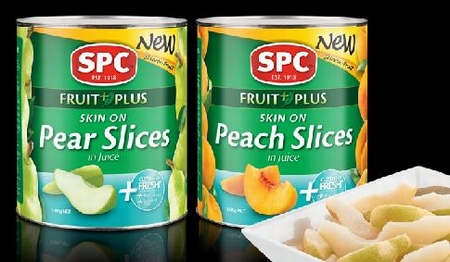
Australian fruit cannery SPC Ardmona has called on the Australian government to put in place emergency tariffs on cheap imported fruit and tomatoes in an attempt to save the local industry.
The Australian newspaper reported that SPC Ardmona Managing Director Peter Kelly had written to Australian Agriculture Minister Joe Ludwig asking him to activate protection measures permitted under World Trade Organisation (WTO) rules where a surge of imports causes or threatens to cause damage to a domestic injury.
“The multi-serve fruit and canned tomato industry has suffered immense damage from cheap imports that have flooded our market on the back of the strength of the Australian dollar,” Mr Kelly said in his letter to Senator Ludwig.
Senator Ludwig said the letter had been received, but it was too early to say whether the temporary tariff protection would be granted.
“We’ve received the information from SPC. What we really have to do is work through that letter, work through the industry portfolio, the trade portfolio, to provide that response,” Senator Ludwig told the Australian Broadcasting Corporation’s (ABC) AM radio program.
Cannery cut suppliers
SPC Ardmona, which is a subsidiary of Coca-Cola Amatil, has applied for the concession after an earlier decision to cut its intake of stone fruit by half. The decision meant 60 fruit growers in Victoria’s Goulburn Valley lost their supply contracts with the cannery, and others had their quotas cut by up to 50 per cent.
Australian Food News reported in April 2013 that SPC Ardmona said market share of imported private label canned fruit had grown to 58 per cent. Woolworths brand canned stone fruit is labelled as being of South African origin, where Coles brand stone fruit is labelled as coming from ‘local and imported ingredients’.
Industry body supports call for help
AusVeg, the national vegetable and potato growers’ representative body, has supported SPC Ardmona’s calls for government help.
“The Australian horticulture industry is suffering from massive injury to its industries with the flood of imported produce that is wrecking regional businesses, employers and families, and we support calls for emergency taxes on cheap imported food,” said William Churchill, AusVeg Public Affairs Manager.
Data released as part of the recent Department of Agriculture, Fisheries and Forestry’s ‘Australian Food Statistics 2011-12’ report, shows that imported fruit and vegetables have increased dramatically over the past five years.
In 2005-06, Australia imported $41 million of fresh vegetables, $184 million of fresh fruit and nuts, and $1,040 million of processed fruit and vegetables. By contrast, in 2011-12, Australia imported $64 million of fresh vegetables, $290 million of fresh fruit and nuts, and $1,742 of processed fruit and vegetables. According to the report, most of the imported fruit and vegetables come from New Zealand, the US and China.
“Decapitation couldn’t be a more accurate description of the situation we are facing here in Australia,” Mr Churchill said. “We are seeing a consistent message of despair around the country as more and more farmers are being paid less and less for their produce as processors here in Australia try to compete on cost,” he said.
AusVeg said the closure in March 2013 of both Windsor Farm Foods Group cannery in Cowra in New South Wales, and iconic tomato sauce brand Rosella were both examples of a “crisis” in the Australian fruit and vegetable sector.






